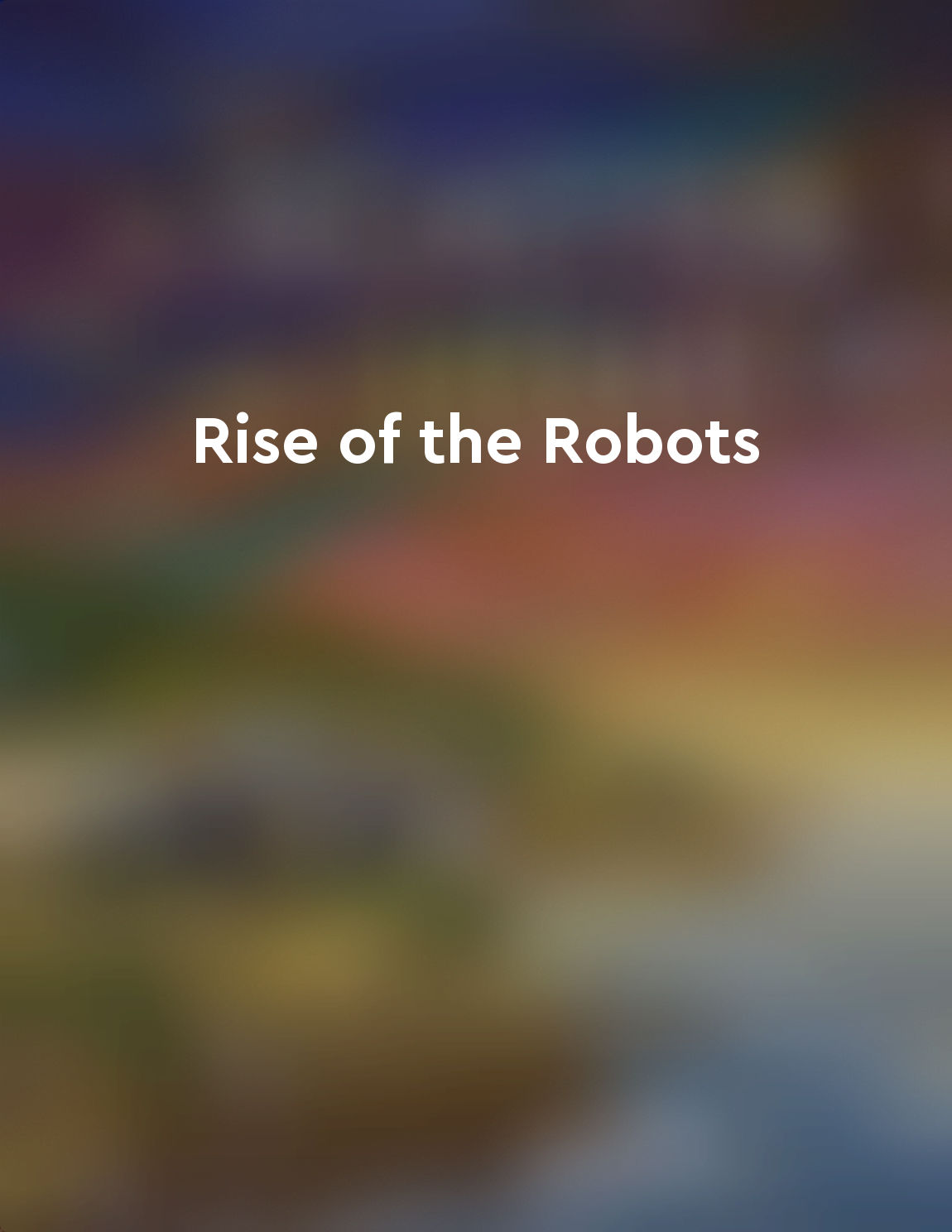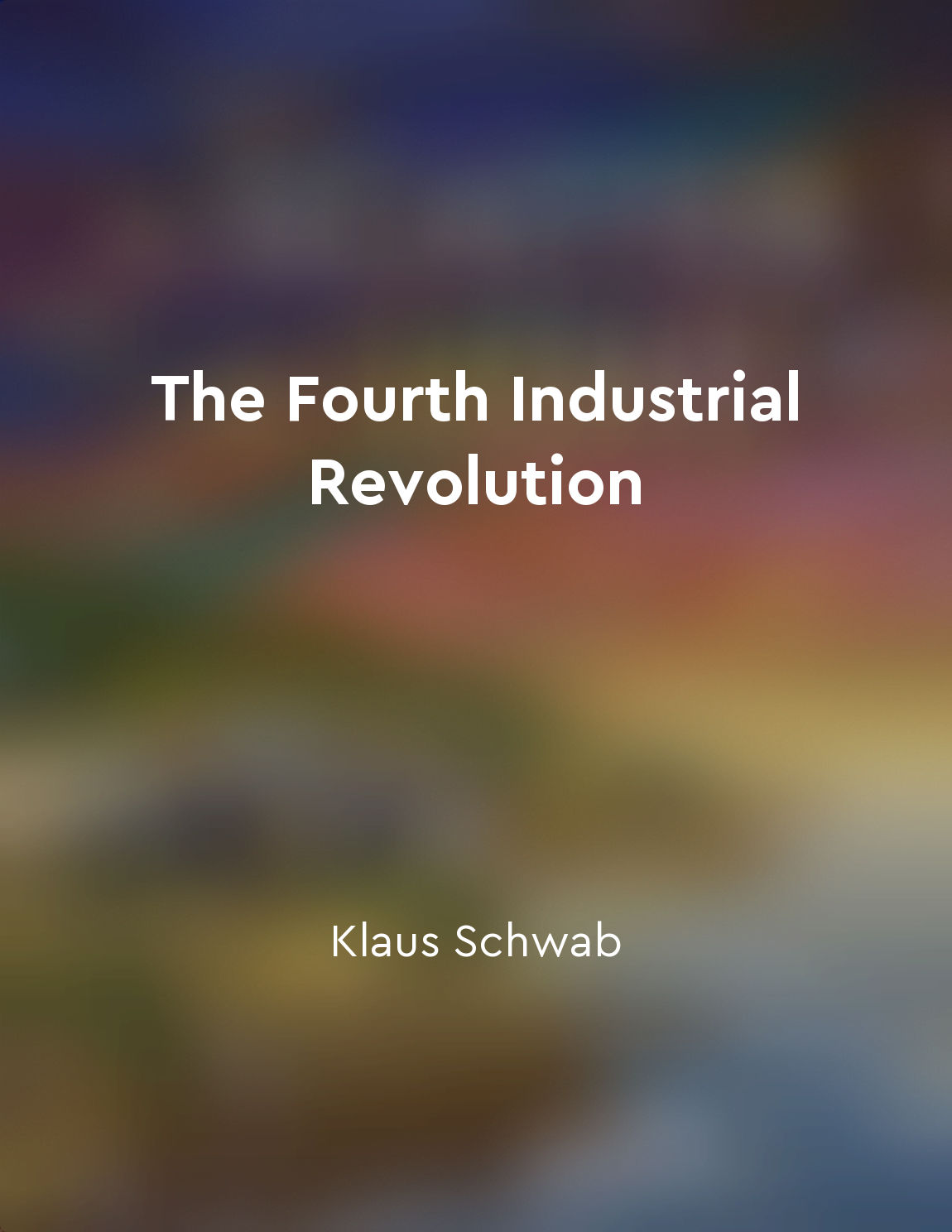Job loss due to automation can lead to economic instability and social unrest from "summary" of Who Owns the Future? by Jaron Lanier
In the modern age, the rapid advancement of technology has brought about significant changes in the workforce. With the rise of automation, many traditional jobs are being replaced by machines and algorithms, leading to a decrease in employment opportunities for human workers. This phenomenon has far-reaching implications for the economy and society as a whole. When jobs are lost due to automation, it not only affects the individuals who are directly impacted but also has broader consequences for the overall economy. As more and more people find themselves unemployed, there is a decrease in consumer spending, which in turn can lead to a slowdown in economic growth. This can create a ripple effect, causing businesses to close down, further exacerbating the problem. Moreover, the loss of jobs can also lead to income inequality, as those who are able to adapt to the changing job market and acquire the necessary skills to work alongside machines are able to command higher wages, while others are left behind. This can widen the gap between the rich and the poor, leading to social unrest and discontent among those who feel marginalized and left out of the digital economy. Furthermore, the rise of automation can also have social implications, as many individuals derive a sense of identity and purpose from their work. When jobs are taken over by machines, people may struggle to find meaning in their lives, leading to feelings of alienation and disillusionment. This can have negative consequences for mental health and social cohesion, further contributing to instability in society.- Job loss due to automation can have profound effects on the economy and society, leading to economic instability and social unrest. It is crucial for policymakers and businesses to consider these implications and work towards finding solutions that can benefit everyone in the digital age.
Similar Posts
Job displacement is a pressing concern
The idea that job displacement is a pressing concern looms large in contemporary discussions about the future of work. Advances...
The power of networks is growing
The power of networks is growing. In the digital age, networks are becoming increasingly important and influential. The authors...
Entrepreneurship is a popular career choice
Entrepreneurship has become a highly sought-after career path in today's world. The allure of being one's own boss, taking risk...

The rise of robots is reshaping economies around the world
In the not-so-distant future, we are witnessing a profound transformation in the way economies operate. The rise of robots is n...
Automation can create a false sense of security
Automation is a powerful force in our lives, taking over tasks that were once performed by human hands and minds. As machines b...
The potential benefits of automation are vast
The promise of automation is a tantalizing one. Its advocates claim that it has the power to transform our lives in ways that w...
Corporate social responsibility is not enough
Many people believe that the solution to the problems of capitalism lies in making corporations more socially responsible. They...

Sustainability must be prioritized to address the environmental impact of technological advancements
As we navigate the Fourth Industrial Revolution, it has become increasingly evident that the environmental impact of technologi...
Accountability in automation is a challenge
The challenge of accountability in automation looms large in our contemporary technological landscape. This issue is not just a...
Free trade can harm developing countries
One of the most commonly held beliefs in the world of economics is that free trade is always beneficial for all countries invol...


